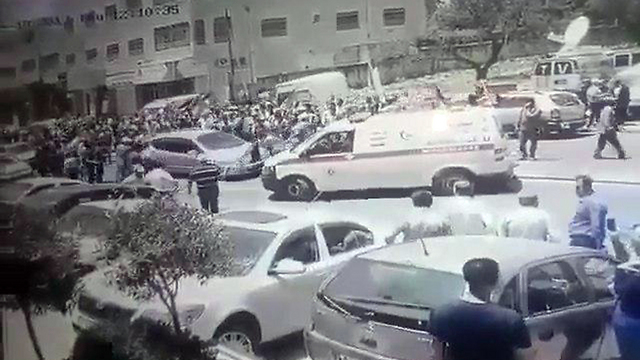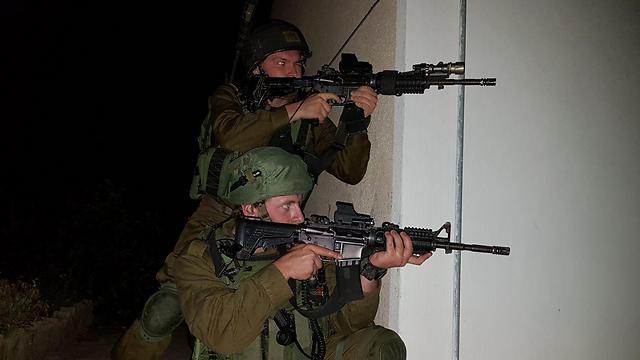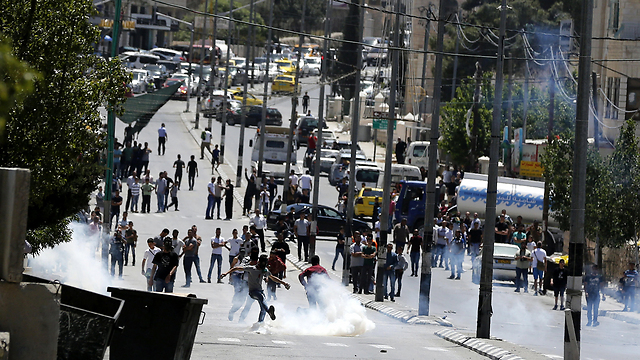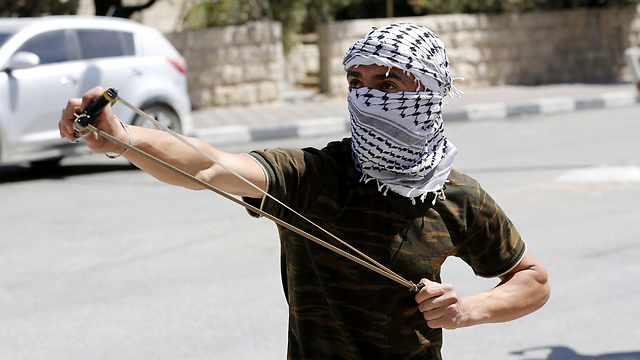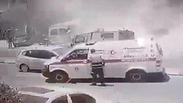
IDF works to forestall rise in violence during summer months
With tensions running high due to recent violence involving the deaths of Palestinians, the IDF and security services are stepping up efforts to calm tensions in flashpoint areas to avoid another wave of terror.
The renewed fear stems from a combination of the Islamic holiday of Ramadan, which may begin at the end of the month (a final deadline has yet to be set), and the prisoners' hunger strike.
Speaking in an interview, a senior IDF officer in the Judea and Samaria Division told Ynet that while the prisoners' hunger strike has not yet "taken hold" and caused masses of Palestinians to take to the streets in protest, the trend may not continue indefinitely.
Additionally, recent events in Huwara and Silwad—involving the deaths of Palestinians—risk making the coming summer months particularly troublesome.
In an effort to counter possible escalations, hundreds of soldiers are expected to reinforce regional brigades, with an emphasis being placed on known friction points, sensitive sites and Palestinian cities.
The reinforcements are expected to come from combat battalions currently involved in training exercises similar to those who reinforced regular IDF units during the last wave of terror.
The expected reinforcements do not stem from a concrete warning of attacks, but rather from an assessment of the situation and a history that portends turbulence and increased sensitivity during the Ramadan period. "We have to sharpen our senses, especially intelligence, during the coming period," said the officer.
Actions taken against popular terrorism by the Judea and Samaria Division, along with the Shin Bet and with the use of advanced technology to identify individual terrorists, have led to a significant reduction in terror attacks. However, the two incidents in which civilians shot Palestinians throwing stones are likely to cause the IDF and police headaches in a region where violence is commonplace.
"From conversations we have with captured terrorists, what matters to the Palestinians is the economic issue," said the officer, who objects to the policy of "carrot and stick" that was outlined by Defense Minister Avigdor Lieberman and his predecessor Moshe Ya'alon.
"The labeling of a village as hostile or violent may become a self-fulfilling prophecy," the officer explained. "We are working in a precise manner to arrest and thwart attacks, also with Palestinian civilian elements to calm the area."
The political echelon is talking about a package of concessions for the Palestinians ahead of US President Donald Trump's visit next week, whose results in Israel and the West Bank may very well influence the trends on the ground.
The army is constantly working to "deploy a raincloud to cool hot Palestinian areas," as an officer in the Judea and Samaria Division puts it.
(Translated and edited by Fred Goldberg)










